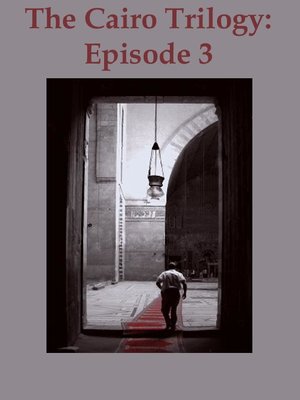

When he decides to marry her, the family objects as she is clearly not of a suitable family but changing mores in Egypt means that she is eventually accepted. Abd al-Muni’m takes a socialist view and works for a left-wing magazine where he meets and falls in love with Sawsan, the daughter of a printer. Like her mother, she is beautiful but has been warned about a weak heart and she dies in childbirth, which leaves Aisha totally devastated.


One of its tenets is that members should be married so, while still relatively young, Ahmad asks his parents to find him a bride and he is married to his cousin, the even younger and very frail Na’ima, daughter of Aisha. Ahmad joins the Muslim Brotherhood, a group whose aim is have to all activity regulated by Islamic law. Ahmad and Abd al-Muni’m are also both involved in politics. Ridwan allies himself with a pasha who has political influence and he is able to help his relatives, including his father, in their careers. The focus is on Kamal, Ahmad’s younger son, Ridwan, the son of Yasin, from Yasin’s first marriage (Yasin is Ahmad’s son from his first marriage) and Ahmad and Abd al-Muni’m, the sons of Khadija, Ahmad Sr’s eldest daughter. Though his wife, Amina, is still alive at the end of the book, she has just had a stroke and been given three days to live by her doctor. His life of dissipation catches up with him and eventually he dies. When his assistant retires, he too retires, selling the shop, which is replaced by a fez shop. The patriarch, Ahmad Abd al-Jawad, has been slowed down by ill health.

The same issues as in the previous books are to the fore – the life of the family, politics and love (or its substitute), with death playing somewhat of a greater role. The life of a community usually does not have a neat ending. The final book in the Cairo Trilogy, while something of summing-up, leaves a few issues outstanding. Home » Egypt » Naguib Mahfouz » السكرية (Sugar Street) Naguib Mahfouz: السكرية (Sugar Street)


 0 kommentar(er)
0 kommentar(er)
